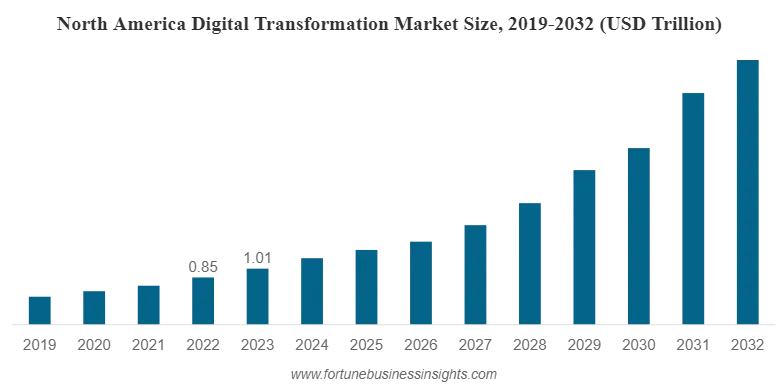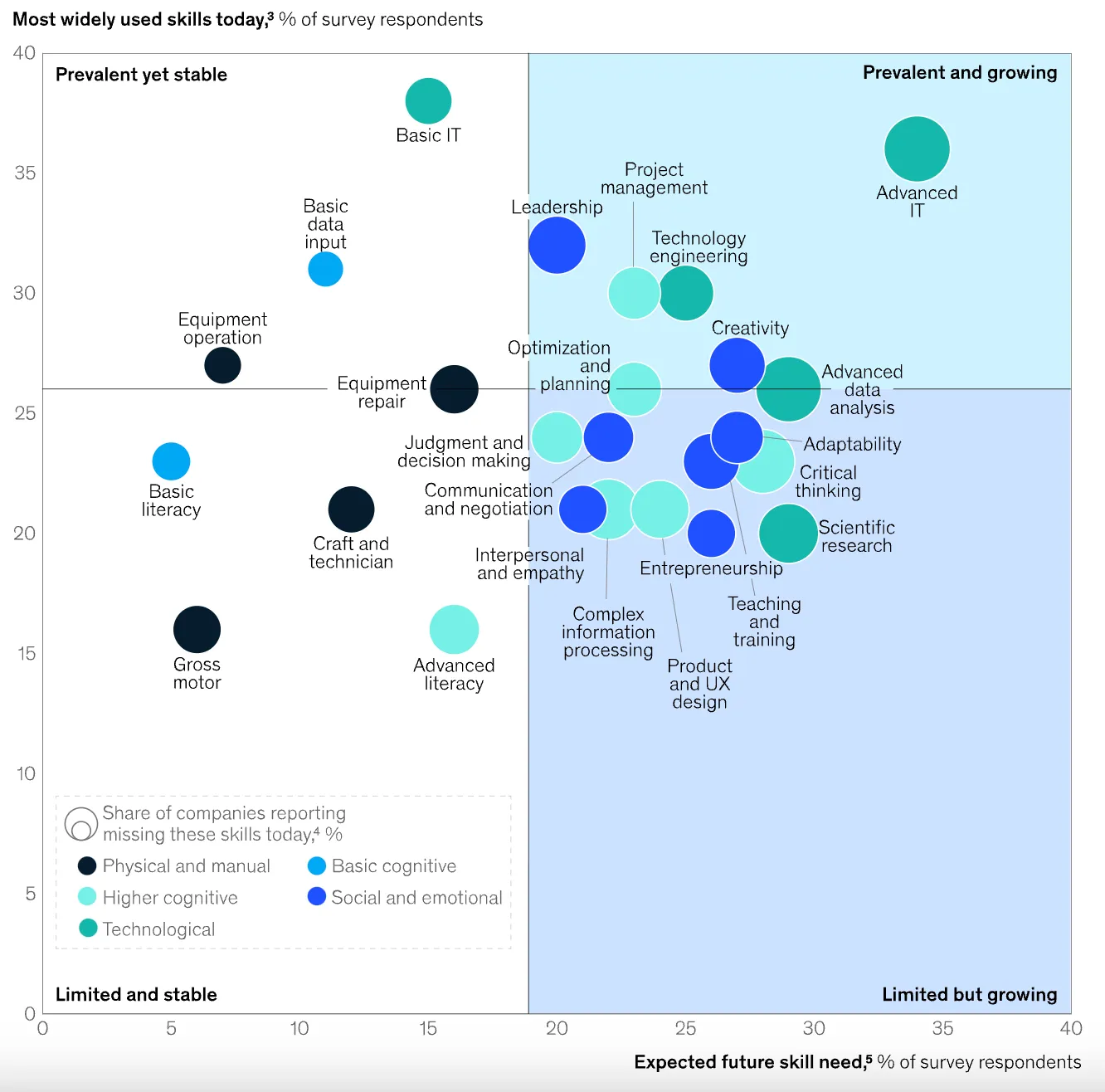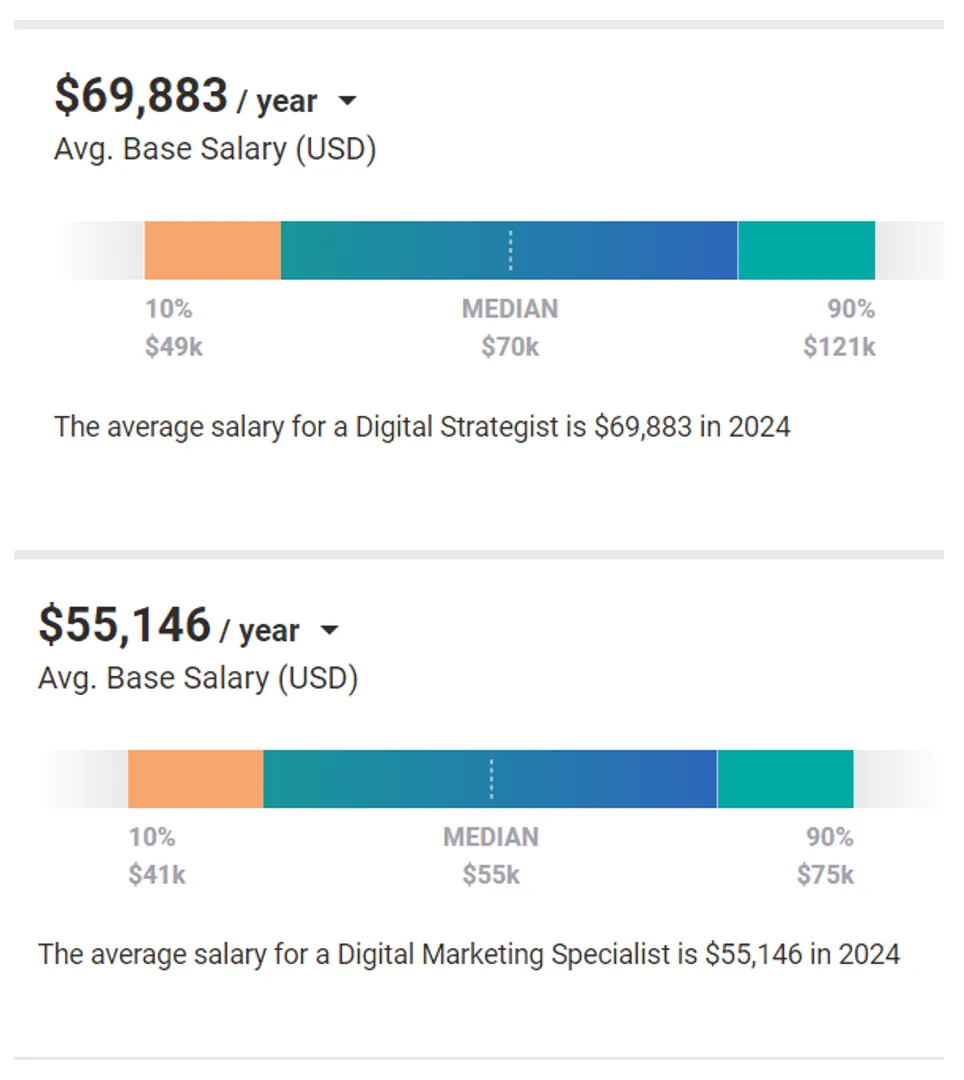Key Facts & Stats on Digital Skills and Employability
Explore key facts and stats on digital skills and their impact on employability. Gain insights into how these skills influence career opportunities and job market trends.
Table of contents

Explore key facts and stats on digital skills and their impact on employability. Gain insights into how these skills influence career opportunities and job market trends.
In today’s job market, digital skills have transitioned from mere words in a dictionary to a thesaurus in itself. Whether you’re aiming for a career in tech or just trying to stay relevant in your current role, having a solid grasp of digital tools and technologies is crucial.
From basic coding knowledge to navigating advanced software, these skills are what set you apart in a competitive landscape.
Many Institutions, including NoCode Institute have made it easier than ever for people to acquire these essential digital skills without needing a deep technical background. By doing so, they’re helping close the skills gap and improve job prospects for many.
Let’s explore some key facts and statistics that highlight the importance of digital skills and how they directly influence employability in today’s world.

The demand for digital skills is rapidly increasing as industries undergo significant digital transformation. The global digital transformation market, valued at USD 2.27 trillion in 2023, is a testament to this shift. Companies like Alphabet, Oracle, and Salesforce are leading the charge, pushing the boundaries with advanced technologies such as AI, IoT, and cloud computing.
This technological evolution is creating a massive demand for professionals who can navigate and leverage these tools effectively. In fact, over 75% of companies plan to integrate these technologies within the next five years, driving a surge in demand for roles like AI specialists, business intelligence analysts, and information security analysts.
Moreover, the rise of digital tools in sectors like manufacturing highlights the need for a tech-savvy workforce. As digitalization continues to reshape industries, the importance of analytical and creative thinking skills is becoming more apparent, with 44% of workers’ skills expected to be disrupted.
This ongoing shift underscores the critical need for continuous learning and adaptability to maintain job security and foster career growth in a rapidly evolving, tech-driven world.
Simply put, staying relevant in today’s job market means leveling up your digital skills to meet the demands of an increasingly digital economy. Learn how to enhance your skills for career advancement and stay competitive in the job market with our comprehensive guide.

Digital skills are quickly becoming the ticket to better job opportunities in today’s shifting labor market. As AI and automation continue to reshape industries, the demand for workers with technological expertise is skyrocketing, especially in regions like Europe and the United States.
By 2030, up to 30% of current work hours could be automated, thanks to advances in generative AI. This means that having digital skills—whether it’s advanced IT, data analysis, or programming—will be more crucial than ever for staying competitive.
Jobs in STEM fields, healthcare, and other high-skill professions are expected to see significant growth, while roles in office administration, production, and customer service may decline. For workers, this creates a clear divide: those with digital skills will find themselves in high demand, with access to better-paying, more secure jobs. On the other hand, those lacking these skills risk being left behind, facing challenges in transitioning to new roles as the labor market evolves.
The need for digital skills isn’t just about keeping up with technology; it’s about future-proofing your career. Companies are focusing on upskilling their current workforce rather than just hiring new talent. This means that workers with the foresight to develop their digital competencies now will be well-positioned to take advantage of the evolving job market and secure their place in the future of work.
In short, mastering digital skills is no longer optional—it’s essential for anyone looking to thrive in tomorrow’s economy. Learn how to navigate transitions, manage uncertainty, and build resilience for a successful career shift. This guide is perfect for professionals seeking practical advice and support during their career change journey.

Digital skills are more than just a boost to your resume—they’re a significant factor in determining your earning potential. As businesses continue to rely on digital strategies, the demand for skilled professionals in this space is driving up salaries across various roles.
For instance, an entry-level Digital Strategist with less than a year of experience can expect to earn around $48,396. However, as they gain experience, their earning potential increases significantly. With 1-4 years under their belt, a Digital Strategist's average salary jumps to $61,818.
Those with 5-9 years of experience see their compensation rise to $76,692. For seasoned professionals with 10-19 years of experience, the average salary hits $103,445.
Even in the later stages of their career, with over 20 years of experience, Digital Strategists can still command an average salary of $95,878.
Similarly, Digital Marketing Specialists and Associates also see substantial increases in their compensation as they gain more experience and hone their skills. Entry-level Digital Marketing Specialists earn around $44,925, but with 5-9 years of experience, they can expect to make $62,106 on average.
Digital Marketing Associates follow a similar trajectory, with salaries starting at $45,740 for beginners and climbing to $56,711 for those in the mid-career stage.
The bottom line? Developing your digital skills is a smart investment that pays off significantly over time, especially as you gain more experience and expertise in your field.

The Fast Forward for Digital Jobs report highlights a glaring gap between the rising demand for digitally skilled workers and the opportunities available for reskilling and upskilling. With the UK projected to create an additional three million digital jobs by 2025, it's clear that mastering digital skills is key to unlocking new career paths.
At the same time, The Transformational Opportunity of AI on ICT Jobs report reveals that 92% of jobs are expected to undergo significant changes due to advancements in AI. This underscores the importance of AI literacy and technical digital skills as key components for career advancement.
Whether you're just getting started with essential digital skills, like navigating websites and sending emails, or you're diving into higher-level technical skills like coding and data analysis, the opportunities are vast.
Tech giants like Google, Microsoft, and Amazon are pushing for initiatives that make these skills accessible to everyone, regardless of their background. As technology continues to evolve, those who invest in their digital proficiency today will be the ones leading tomorrow's workforce.
Now more than ever, embracing digital skills can open doors to exciting and well-paying careers. Attract consulting gigs and job offers by becoming an expert in your field with our guide on showcasing your knowledge, building a strong online presence, and networking effectively.

For new graduates, being digitally literate means more than just knowing how to use a computer; it’s about understanding and applying advanced technologies to solve real-world problems. As companies continue to prioritize digital skills, graduates who invest in these areas are setting themselves up for success in an increasingly competitive job market.
The recent Wheebox India Skill Report 2023 highlights that employability among young people has risen to 50.3%, with a significant boost in women’s employability, now at 52.8%. This shift is largely due to the growing demand for digital skills, especially in fields like AI, machine learning, and data science.
Mercer’s "India’s Graduate Skill Index: 2023" further emphasizes the importance of digital literacy, showing that graduates with AI and ML skills have an employability rate of 48%. Meanwhile, roles like Backend Development and Data Analysis show strong employability figures, hovering around 39%. The ability to navigate complex digital tools and technologies is now a critical factor in securing a job, especially in high-demand sectors.
Being savvy with digital tools and platforms makes them stand out to employers who are looking for candidates ready to hit the ground running. It shows they’re not just familiar with tech but can actually use it effectively in their roles.

Digital hiring has significantly increased and demonstrated resilience throughout the pandemic. Over the past five years, demand for digital skills has steadily risen.
Closing the Digital Skill Divide, a report from the National Skills Coalition (NSC) and the Federal Reserve Bank of Atlanta reveals that 92% of jobs in the U.S. labor market require digital skills. Previous NSC research showed that a third of workers lack essential digital skills, highlighting a significant gap.. The findings underscore the strong and growing demand for digital skills across various industries.
According to the Digital Jobs and Digital Skills report by the Asian Development Bank in collaboration with LinkedIn, nearly 75% of employers surveyed across five countries have reported an increased need for digital skills at all levels, from basic to advanced.
The survey of employers showed that, on average, employers required 8 of the last 10 candidates hired in the past year to possess at least basic digital literacy and skills and 4 of the last 10 hires to possess advanced digital skills.
Although digital talent in renewable energy is currently at 56%, many emerging skills are centred on data analysis, visualization, and application. These skills are increasingly vital as the industry transitions from engineering innovations to advancements in smart grids, IoT, and energy forecasting to support decarbonization efforts.
A notable fact is that from January 2017 to February 2020, the rate of digital hiring on LinkedIn—which tracks the proportion of members listing digital skills in their profiles and changing employers—rose by 7%. This figure underscores the growing emphasis on digital competencies and their expanding role in the modern job market.
Learn how upskilling and reskilling can boost your career, increase earning potential, and future-proof your job. Explore the top reasons why continuous learning matters.
In a world that's constantly evolving, staying ahead of the curve means embracing digital skills. Whether you're a new graduate stepping into the job market or a seasoned professional looking to advance, mastering these skills is your ticket to success.
The future of work is undeniably digital, and those who invest in their digital proficiency today will find themselves leading tomorrow's workforce. With the rapid rise in demand for tech-savvy professionals, there's never been a better time to upskill. So, don't just sit on the sidelines—dive in, explore, and start leveling up your digital game. Your future self will thank you!
If you’re looking for a platform to build these skills and stay ahead, check out the NoCode Institute’s programs. It offers great opportunities to level up and get ready for the future job market!